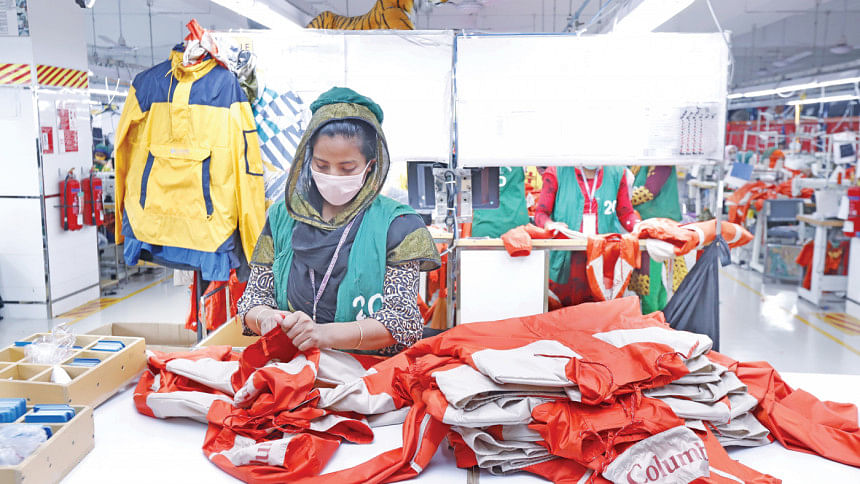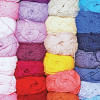Import of manmade fibre surges amid rising demand

Imports of manmade fibre (MMF), such as polyester staple fibre (PSF) and viscose staple fibre (VSF), are surging in Bangladesh due to higher demand from local garment makers and exporters.
In 2022, local spinners imported 1.10 lakh tonnes of PSF at a cost of about Tk 1,243 crore. The year before, some 1.34 lakh tonnes of PSF were imported for around Tk 1,280 crore.
Between January and April of the current year, Bangladesh imported 30,653 tonnes of PSF worth roughly Tk 330 crore, according to data from the Bangladesh Textile Mills Association (BTMA).
Similarly, the country imported 92,898 tonnes of VSF worth about Tk 1,734 crore last year, up from 73,230 tonnes for Tk 1,265 crore in 2021, the data shows.
In the first four months of 2023, a total of 48,431 tonnes of VSF worth Tk 931 crore were imported.
The BTMA suggests that MMF imports have risen as local garment makers are increasing the production of non-cotton garment items in a bid to get better prices and grab a bigger share of the global market for this segment.
Moreover, prices of MMF are lower than cotton, said Monsoor Ahmed, additional director of the BTMA, which is a platform for the primary textile sector.
The demand for clothing has increased a lot in line with the global supply chain's recovery from the Covid-19 pandemic and so, the price of cotton has also gone up in international markets.
As a result, local manufacturers started increasing their MMF imports, he said, adding that MMF-based garment items fetch better prices than their cotton-based counterparts.
Ahmed also said the MMF sector has witnessed a surge in investment over the past three or four years because of the rise in demand from local garment suppliers.
For example, investment in the MMF sector currently stands at nearly $2.5 billion while it was nothing five years ago.
At present, there are six dedicated MMF textile mills in operation while others are waiting to begin production.
Faruque Hassan, president of the Bangladesh Garment Manufacturers and Exporters Association (BGMEA), said local production of MMF-based yarn and fabrics has increased a lot over the last two years.
Currently, of the total annual apparel exports, some 24 per cent are MMF-based garment items, but the BGMEA aims to take this percentage to 40 per cent by the end of 2030.
"Exporting more MMF garments could help the industry recover from the falling trend of shipments in this bad time," Hassan said.
Besides, the BGMEA has already sought 10 per cent cash incentives on exports of MMF-based garment items to encourage shipments, he added.
Prices of MMF-based apparel is higher than cotton-made garment items. For instance, if a T-shirt made from cotton costs $5 per piece, the same item would be priced at nearly $10 if made from MMF.
Globally, the demand for MMF-based garments is higher, accounting for some 74 per cent of all clothing items sold worldwide.
So, local garment exporters are more inclined towards MMF-based garments as they look to grab a bigger market share of the segment's roughly $750 billion global market.
Local garment suppliers have been trying to export to new markets so that any kind of bad impact in traditional markets like the US and EU can be offset to an extent, Hassan said.
So, exporting more MMF-based garments would help a lot to this end, especially in Asian markets.
Globally, the demand for MMF-based apparel has been growing because of the changing trends of fashion and lifestyle.

 For all latest news, follow The Daily Star's Google News channel.
For all latest news, follow The Daily Star's Google News channel. 






Comments